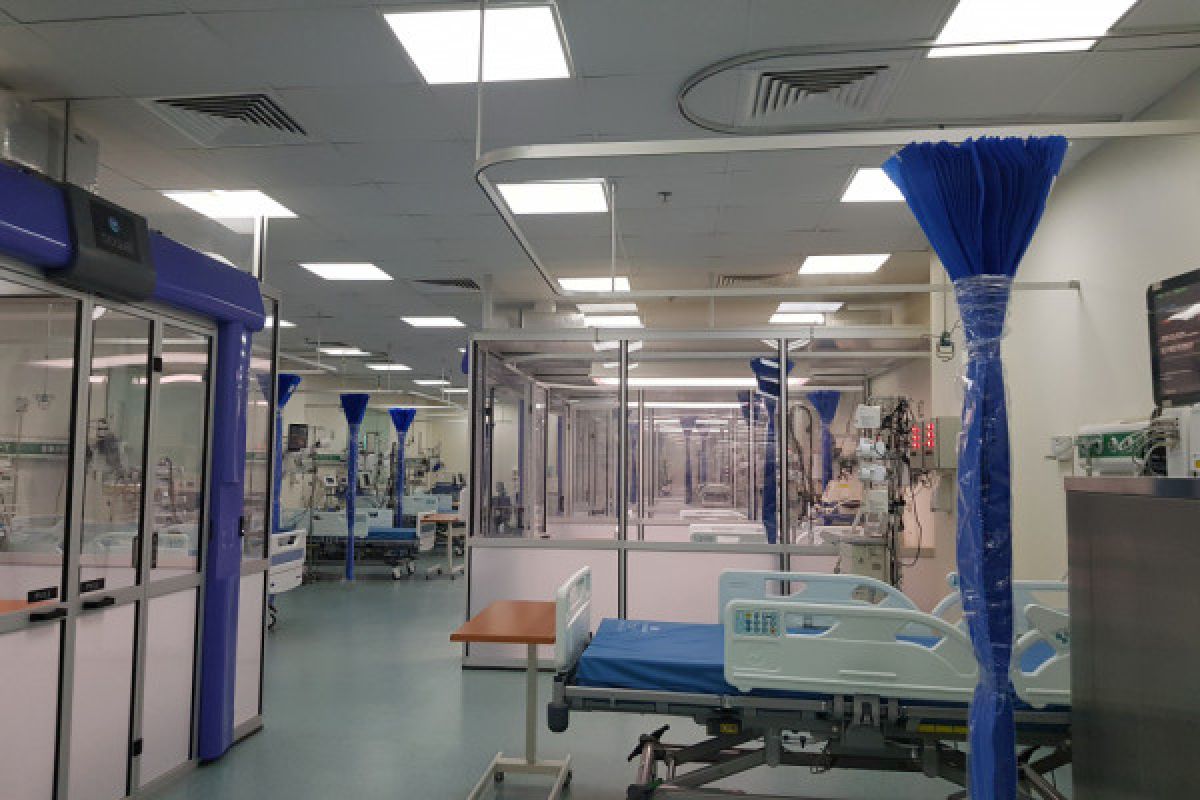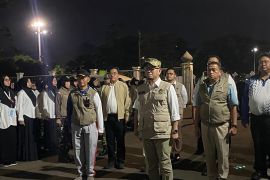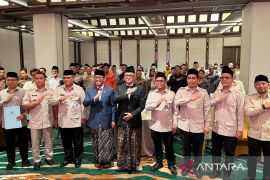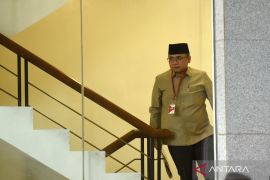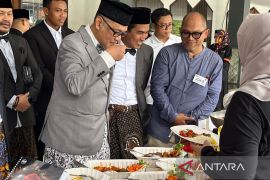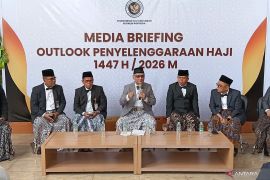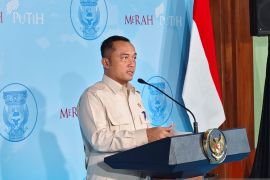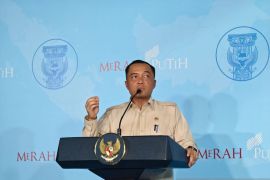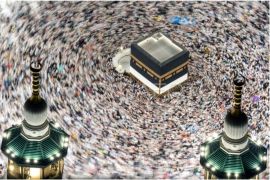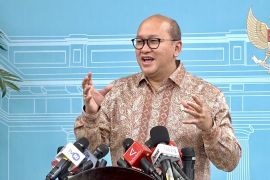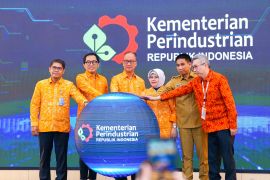"Translators for some seven to eight languages have been provided at this hospital," Director General of Health Affairs in the Mecca Region Dr Wael Hamzah Motair informed reporters from several countries while visiting numerous health facilities for pilgrims in Mecca recently.
He stated that in addition to English and French, Indonesian had became one of the eight languages for which translators had been provided at the Arafah East Hospital.
During the 1439 Hijri (2018) Hajj, the Kingdom of Saudi Arabia will welcome and serve three million pilgrims. The number of pilgrims from Indonesia is the largest, reaching 221 thousand people, followed by 184,210 from Pakistan.
According to Motair, the East Arafat Hospital only operates during the Hajj season, which is about six days, starting from Dzulhijjah 8 to 13, or Aug 20 to 25.
All medical treatments, including medicines, are given free of charge to pilgrims.
Motair noted that during the Hajj season this year, the Ministry of Health of the Kingdom of Saudi Arabia has prepared 350 ambulances, 25 thousand health workers comprising doctors, nurses, and pharmacists from Saudi Arabia, as well as other countries, such as Syria, Pakistan, and Egypt, to offer competent and quality health services of international standard according to the World Health Organization.
"All health workers must be Muslims, as they are working in the Land of Haram where non-Muslims are not allowed to enter, according to Allah Subhanahu Wa Ta`ala`s command mentioned in the Qur`an," he explained.
Motair pointed out that the East Arafat Hospital has 230 beds, and all bedsheets and curtains in the hospital are made of antiseptic and antibacterial material. The hospital also has an isolation room for special cases, rooms for treating heat strokes equipped with cooling areas, intensive care unit, pharmacy, and operation room.
Dr Motair added that cases resulting from heat and fatigue were the highest based on last year`s Hajj season. Some 800 patients were treated at the hospital.
"Last year, we had estimated to receive one to two thousand patients, but since preventive measures have been taken, we could reduce the number of cases. We also help to vaccinate pilgrims from certain countries that did not apply the vaccination program for pilgrims when they enter Saudi Arabia through seaports and airports," he explained.
In addition to the East Arafat Hospital, there are 17 hospitals and 93 health clinics, with tens of thousands of doctors and nurses, as well as high-tech medical equipment have been prepared by the Saudi Arabian Ministry of Health to serve this year`s pilgrims.
"Eight hospitals and 93 clinics are located in the Masya`ir area, while nine hospitals are in Mecca," Director of the Hajj and Umrah Department at Mecca Health Affairs Dr Mwafaq Abutalib stated.
Dr Mwafaq explained that 17 hospitals in Masya`ir included the East Arafat Hospital, General Hospital Arafah, Namirah General Hospital, Jabal Rahmah Hospital, and Mina Emergency Hospital.
"There are 46 health clinics in Arafah, six in Muzdalifah, 25 in Mina, and 16 in Jumarat," he noted, adding that the hospitals that have prepared to serve pilgrims in the Mecca region include the King Abdullah Medical Hospital, Jiyad Hospital, Al- Haram Hospital, Heraa Hospital, and Maternity and Children Hospital.
The procession of the pilgrims begins on the 8th of Dzulhijjah, or Aug 20. On this day, the pilgrims express their intent to perform Hajj, depart for Mina, and stay for a night.
The next day, on the 9th Dzhulhijjah, the pilgrims visit Arafat where they perform wukuf. Here the pilgrims are encouraged to offers prayers multiple times and to not leave Arafat until the sun sets.
The pilgrims thereafter head to Muzdalifah and stay overnight. After sunrise, they leave for Mina.
On the 10th of Dzhulhijjah, which is also celebrated by Muslims around the world as Eid al-Adha, the pilgrims hurl gravel stones that they had taken at Muzdalifah or Mina at the poles that represent the devil.
(T.KR-LWA/INE)
EDITED BY INE
(T.KR-LWA/B/KR-BSR/F001) 19-07-2018 16:05:04
Reporter: Libertina W. Ambari
Editor: Fardah Assegaf
Copyright © ANTARA 2018
